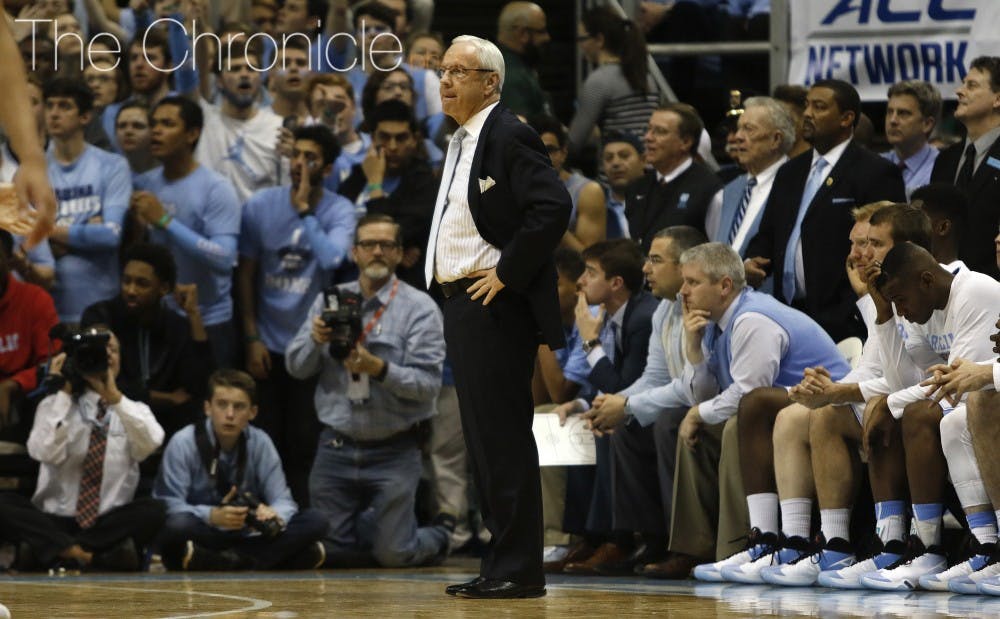It’s clear and simple: The NCAA let North Carolina get off disturbingly easy for its academic fraud scandal—with no athletics penalties.
After years of investigation, the Division I Committee on Infractions concluded that North Carolina did not violate NCAA rules by offering “paper courses” to the general student body as an “orchestrated effort to benefit student-athletes.”
These classes didn’t exist, but kept athletes eligible to play. So-called “student-athletes” were steered toward classes in the Department of African and Afro-American Studies that never met and only required a paper at the end of the year. Some of these athletes were writing at elementary school levels and still earning A-minuses.
After the scandal broke, one former North Carolina professor told me the university had to hire a person to drive in a golf cart from classroom to classroom every day to make sure athletes’ courses indeed existed.
This isn’t about bashing North Carolina. What they did was wrong, and they’ve admitted that.
Rather, what is most concerning about the scandal is the dangerous precedent the NCAA has set with its policy that academic fraud is out of its jurisdiction. By doing so, it encourages other schools to follow in North Carolina’s path—just because they know the NCAA can’t do a thing about it.
The NCAA has established that it “defers to its member schools to determine whether academic fraud occurred.” Essentially, if the individual school says it meets its own expectations, it can justify any sort of clearly fraudulent classes like these.
“While the university admitted the courses failed to meet its own expectations and standards, the university maintained that the courses did not violate its policies at the time,” the NCAA’s statement said.
It makes sense that the NCAA shouldn’t be allowed to meddle in universities’ courses—it would be overreaching if it could rule on whether the rigor of a class was enough. I understand why the NCAA would want to stay away from that.
Unless, of course, the classes give extra benefits to athletes, which they clearly did. And that’s what’s most despicable about the NCAA’s precedent.
The committee said that athletes didn’t get extra benefits. Come on.
There is written proof in an email that an academic advisor collaborated with an athletic advisor to arrange a grade for a women’s basketball player. Read for yourself:
African and Afro-American Studies Department Administrator Deborah Crowder: “As long as I am here I will try to accommodate as many favors as possible. Did you say a D will do for [basketball player]? I'm only asking that because 1. no sources, 2. it has absolutely nothing to do with the assignments for that class and 3. it seems to me to be a recycled paper. She took AFRI in spring of 2007 and that was likely for that class."
Women's basketball academic counselor Jan Boxill: "Yes, a D will be fine; that's all she needs. I didn't look at the paper but figured it was a recycled one as well, but I couldn't figure from where! Thanks for whatever you can do."
Granted, the player was reportedly already done with her playing time and just needed to graduate—but would she really have received this special favor if she wasn’t an athlete?
According to NCAA bylaw 16.02.3, extra benefits are defined as any sort of “special arrangement by an institutional employee...to provide a student-athlete...a benefit not expressly authorized by the NCAA legislation.”
The NCAA makes the argument that the classes were not an extra benefit to athletes because they were offered to the general student body. That’s valid, but the rest of the students did not have athletic staffers asking for certain grades on their behalf—and academic administrators seeming to cooperate. It’s ridiculous to believe that all 3,100 of the students who took these classes had their grades arranged for them.
By failing to punish North Carolina for allowing basketball staffers to essentially request certain grades for players, the NCAA has enabled other universities to pass athletes who should not be eligible.
If the NCAA truly wanted to protect the sanctity of amateur collegiate athletics as it claims, it needed to take a stand against clear special benefits for student-athletes.
Otherwise, these paper classes might be getting Xeroxed.
Get The Chronicle straight to your inbox
Signup for our weekly newsletter. Cancel at any time.

Managing Editor 2018-19, 2019-2020 Features & Investigations Editor
A member of the class of 2020 hailing from San Mateo, Calif., Ben is The Chronicle's Towerview Editor and Investigations Editor. Outside of the Chronicle, he is a public policy major working towards a journalism certificate, has interned at the Tampa Bay Times and NBC News and frequents Pitchforks.

